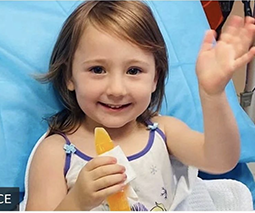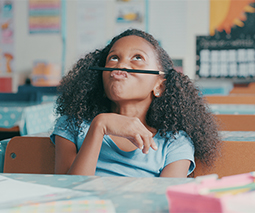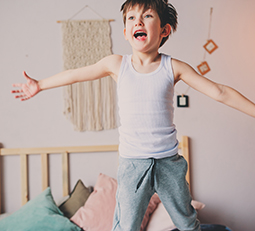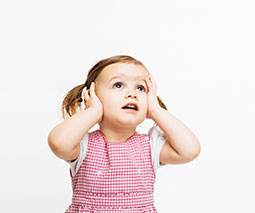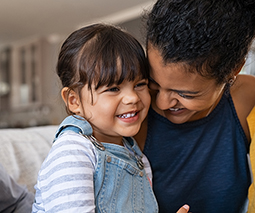Anxiety and depression: How can we care for our children’s mental health?
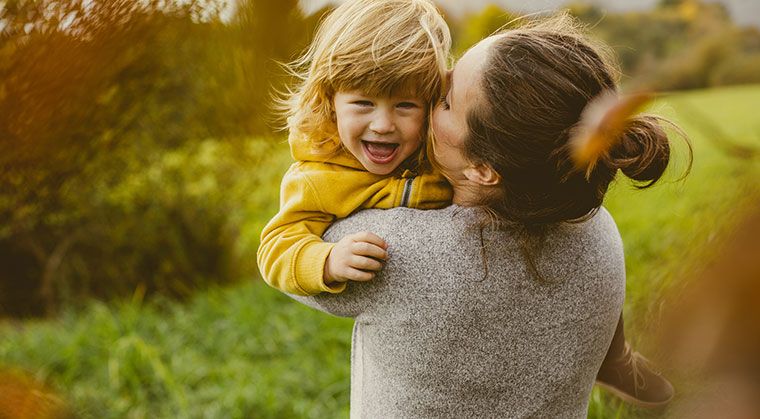
With the importance of good mental health now so widely acknowledged, we’re seeing more and more kids suffering from anxiety and depression. But what can we do to help?
Dr Joanna North, psychotherapist and author of Mind Kind – Your Child’s Mental Health has some helpful tips for raising children to have healthy minds.
Listen to Dr Joanna North on Feed Play Love:
Common mental health issues
In her clinic, Joanna sees a lot of children who feel anxious and depressed.
“More increasingly, there are younger children who feel that they just can’t cope with their lives,” she says. “We get more teenagers who are feeling very unhappy or at least mildly depressed, who are resorting to self-harm and might have suicidal thoughts; we also see a lot more obsessive-compulsive tendencies in children these days.”
Are mental health issues avoidable?
Joanna always tells parents that anxiety is very much a part of life, and apart from extreme circumstances, it’s not going to kill you.
“We’re supposed to feel anxiety, and it’s something that helps us put things right in our lives,” she says. “We’re supposed to be able to manage it, and the opposite of anxiety is feeling that you can cope with your life.”
Joanna says that both genetic and environmental factors can influence our mental health.
“It depends how we’re biologically, mentally and emotionally made up and the characteristics of our personality do, without doubt, contribute to anxiety, but the environment is terribly important,” says Joanna. “Either way, we’re all going to get a dose of it at some stage. And, in my view, we are all going to have to get better at managing our situation and then managing stress because our environments are very stressful.”
Building emotional resilience in children
Joanna believes that we should encourage our kids to be more resilient – and not just by letting them climb trees.
“What I’m also referring to is mental and emotional resilience and how we build those mental and emotional muscles in children,” she says. “One of the best ways to build mental and emotional muscle is to travel through adversity, we learn from difficult experiences.”
Joanna encourages parents not to let their children avoid challenging scenarios. Instead, we should help children think about it, reflect on it, manage it appropriately and get through it. “Failure is a fantastic way to learn,” she says.
A healthy environment
There are ways of making your child’s environment less stressful. “Ensure that there aren’t antagonistic elements in the environment like bad-tempered people or too much worry or too much aggressive television,” Joanna says.
Time management is also essential, and Joanna recommends looking at your child’s timetable to see what can be restructured.
“One of the biggest ways to overcome stress and anxiety is to get in control of your time and make sure that events aren’t overtaking you,” she says.
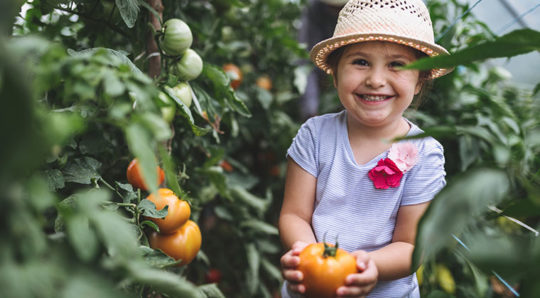
Am I an anxious parent?
As parents, we receive so much advice about what’s best for our kids that it can be hard to know if we’re doing the right thing. And Joanna sees a lot of parents who are worried about whether they are doing what’s best for their child.
“The world is full of information right now, and it provokes more anxiety. If you’re anxious as the parents, you’re definitely going to increase the anxiety in your child,” she says. “Find your calm; you’ll do your child to a world of good if you come at them in a calm, thoughtful way.”
However, Joanna acknowledges that as parents, it’s not always possible to be calm and relaxed.
“Children sometimes infuriate their parents and do absolutely the wrong thing because they’re experimenting with life,” she says.
“You know you’re going to have emotions about your child, so deal with your own emotions, and reflect on what’s going on and then come back and sit more calmly.”
It’s about taking a step back and trying to calm down. “Try and think rationally about what your next steps are,” Joanna suggests. “And experiment as well, you might get your next step a tiny bit wrong, so make a plan that’s flexible for you.”
A helpful reminder
To help parents find their calm, Joanna has created an acronym, that encompasses the qualities required to bring up children and the emotional states people enjoy. Easy to remember, PATACAKE stands for patience, acceptance, tolerance, attunement, compassion, awareness, kindness and empathy.
“Stick it on your fridge and in those moments when you don’t feel like you’re going to be a great parent, just take a look at it and think of all the other options that you’ve got.”
